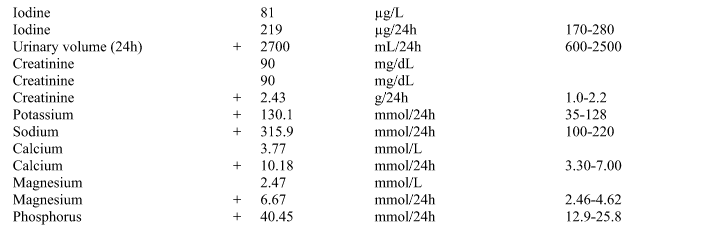@jack blogs,
Re are you safe? I really don't know. People with WD can have normal ceruloplasmin and serum copper because of the acute phase reactant thing, so if you had some sort of inflammation going on at the time, that could affect your results. (My last copper tests a few years ago had just crept into normal range, which I suspect was because of increased inflammation.)
I personally would want to know what my ceruloplasmin level was at the time of the low serum copper.
Sorry if you've already said before, (I'm half asleep) but what did your doctor say about the possible cause of your deficiencies? Is your doc a general GP or a ME/nutrition type of doc?
I don't know anything about the medrol or other steroids, so not sure what impact that might have on your copper levels and general nutritional status.
Re antihistamines, was just wondering if they make you feel better if you had tried them.
Re are you safe? I really don't know. People with WD can have normal ceruloplasmin and serum copper because of the acute phase reactant thing, so if you had some sort of inflammation going on at the time, that could affect your results. (My last copper tests a few years ago had just crept into normal range, which I suspect was because of increased inflammation.)
I personally would want to know what my ceruloplasmin level was at the time of the low serum copper.
Sorry if you've already said before, (I'm half asleep) but what did your doctor say about the possible cause of your deficiencies? Is your doc a general GP or a ME/nutrition type of doc?
I don't know anything about the medrol or other steroids, so not sure what impact that might have on your copper levels and general nutritional status.
Re antihistamines, was just wondering if they make you feel better if you had tried them.

